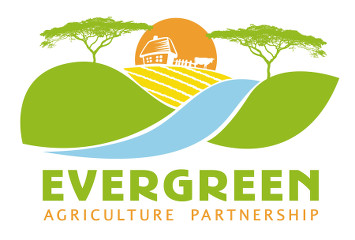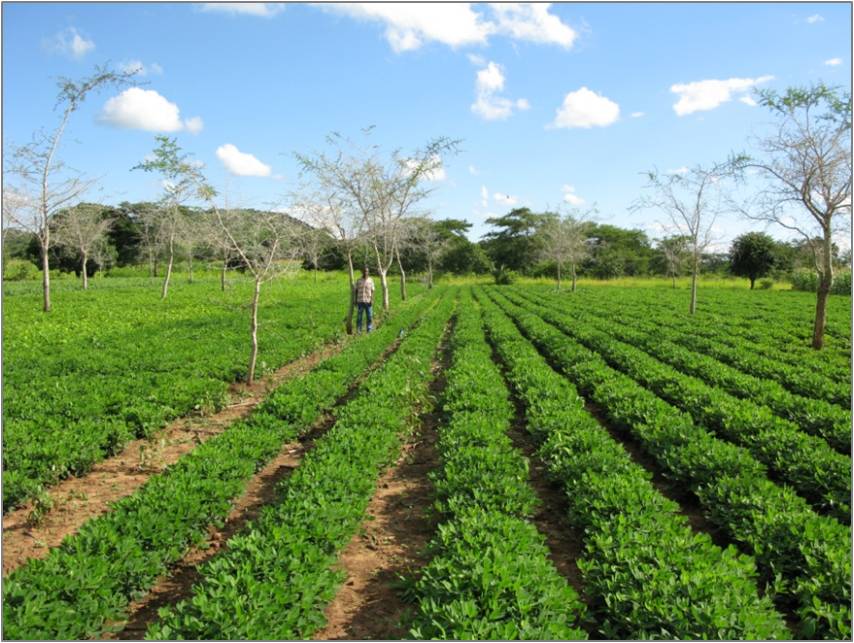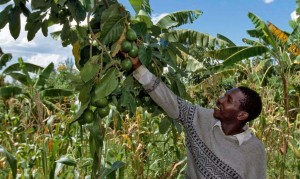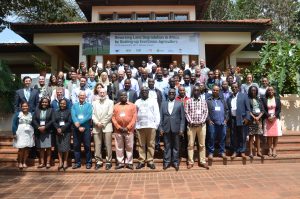 A visit to Embu County, Kenya, two years ago has birthed a very promising project to address the challenges emanating from land degradation. While visiting Purity Gachanga, an agroforestry champion, Dr. Roberto Ridolfi, Director for Sustainable Growth and Development at the Directorate General for Development and Cooperation, was impressed by the transformation that trees could bring to African farmers. Keen to see these benefits spread across the continent, and enjoyed by many millions of farmers, Dr. Ridolfi initiated the project dubbed ‘Reversing Land Degradation in Africa by Scaling-up EverGreen Agriculture’.
A visit to Embu County, Kenya, two years ago has birthed a very promising project to address the challenges emanating from land degradation. While visiting Purity Gachanga, an agroforestry champion, Dr. Roberto Ridolfi, Director for Sustainable Growth and Development at the Directorate General for Development and Cooperation, was impressed by the transformation that trees could bring to African farmers. Keen to see these benefits spread across the continent, and enjoyed by many millions of farmers, Dr. Ridolfi initiated the project dubbed ‘Reversing Land Degradation in Africa by Scaling-up EverGreen Agriculture’.
EverGreen Agriculture, which is a form of agroforestry, is an affordable solution that integrates trees with food crops and livestock to create more sustainable and productive agricultural systems for smallholder farming families. While positively transforming the lives of farmers in more than twenty African countries, trees on farms restore exhausted soils with richer sources of organic nutrients. This translates to increased crop yields, more fodder for livestock, and greater firewood supplies for household consumption, and increased income.
More than 80 experienced development professionals and scientists convened at the project’s inception workshop held at the World Agroforestry Centre (ICRAF) from 26-30 September, to map out the best approaches to scale-up these practices to reverse land degradation in eight countries in the Sahel and East Africa. Dennis Garrity, Drylands Ambassador to the UN Convention to Combat Desertification and Chair of the EverGreen Agriculture Partnership said in his opening remarks that “Scaling up EverGreen Agriculture to 500,000 farmers across Africa will not be easy. In fact, it will be hard. But, we relish the fact that we have the partnership and the resources and skills to do it. And we are building on the successful efforts that are already underway in all of these eight countries.”
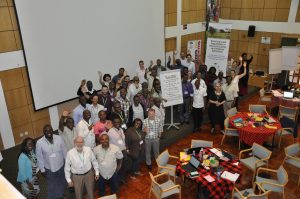 Through working groups and learning exchange bazaars over the span of four days, participants discussed the development of appropriate interventions and scaling-up methodologies, based on the successful experiences and evidence shared by the various implementing partners, including World Vision, CRS, OxFam and CARE. These will guide the project during its five-year lifespan. “Implementation of Farmer Managed Natural Regeneration is important because without implementation we have no evidence, and without evidence, we have nothing to communicate. We therefore need to have a good mix of the these for us to spread the practices of EverGreen Agriculture,” noted Lawrence Kiguro, Associate Director, Livelihoods and Resiliency – World Vision, Kenya
Through working groups and learning exchange bazaars over the span of four days, participants discussed the development of appropriate interventions and scaling-up methodologies, based on the successful experiences and evidence shared by the various implementing partners, including World Vision, CRS, OxFam and CARE. These will guide the project during its five-year lifespan. “Implementation of Farmer Managed Natural Regeneration is important because without implementation we have no evidence, and without evidence, we have nothing to communicate. We therefore need to have a good mix of the these for us to spread the practices of EverGreen Agriculture,” noted Lawrence Kiguro, Associate Director, Livelihoods and Resiliency – World Vision, Kenya
